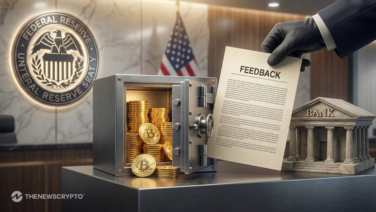Brazil is by all accounts near slowing down its efforts to boost the cryptocurrency industry. In the wake of pushing hard for the lawfulness of digital asset exchange. The newly chosen one to lead the CVM (Brazil’s comparable to the U.S SEC) said that the nation should have more prominent control and carefulness over this kind of task.
In late articulations, Otto Eduardo Albuquerque Lobo communicated his alert at the developing interest of individuals in digital currency tasks. In spite of the fact that there is a budding interest in digital forms of money. Such resource classes aren’t regulated by Brazilian law. Notwithstanding, Brazil was the principal country in South America to support a digital money ETF. Which surpassed exchanging volume assumptions around the same time it launched.
President Jair Bolsonaro put forward Otto Eduardo Albuquerque Lobo to lead the CVM. Also, managerial procedures are practically prepared for his approval amidst a political emergency. The Economic Affairs Committee of the Federal Senate has effectively addressed him and supported his selection on July 5, 2021.
A Change of Direction?
During his discourse to the Country’s Senate, Otto Eduardo Albuquerque Lobo shared his dismay. Regarding how the CVM had been acting in the past according to the digital money market.
” One point that deserves special attention has to do with crypto-assets, which do not have regulation in the country. Nevertheless, this year the CVM authorized the negotiation of ETFs, index funds, of crypto-assets in Brazil.”
During the stay of the current leader of the CVM, Brazil executed a regulatory sandbox that incorporated a few tasks that tried to apply new advancements (including blockchain and digital forms of money) to the field of public administration.
Why Brazil Matters
At present, Brazil has two authorized cryptos ETFs. QR Bitcoin (QBTC11) a Bitcoin-only ETF overseen by QR Asset Management. The Hashdex Nasdaq Crypto Index Fundo de Indice (HASH11), overseen by Hashdex, tracks the performance of a basket of digital money created by Nasdaq.
Also, a few fintech work as digital currency exchanges and permit their clients to utilize prepaid credit cards up to the time individual’s trade their Bitcoin to fiat before buying.
In every one of the cases referenced above, digital money clients should agree with the KYC necessities requested by law and document expense forms on these activities. All in all, Brazil has apparent authority over the cash developments of its residents.
In all the aforementioned cases, cryptocurrency users must comply with the KYC requirements demanded by law and file tax returns on these operations. In other words, Brazil has clear control over the money movements of its citizens.
Recommended for You








